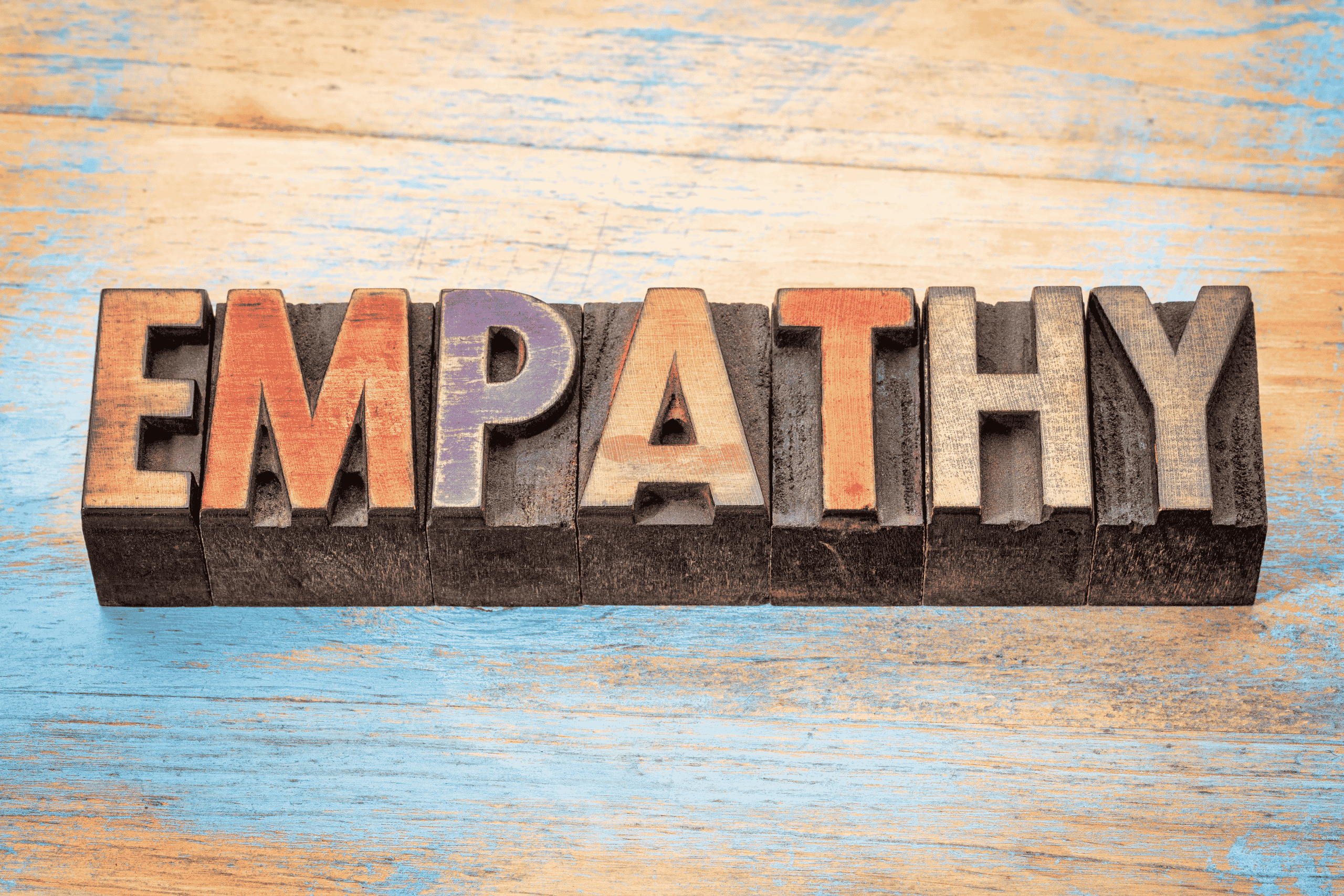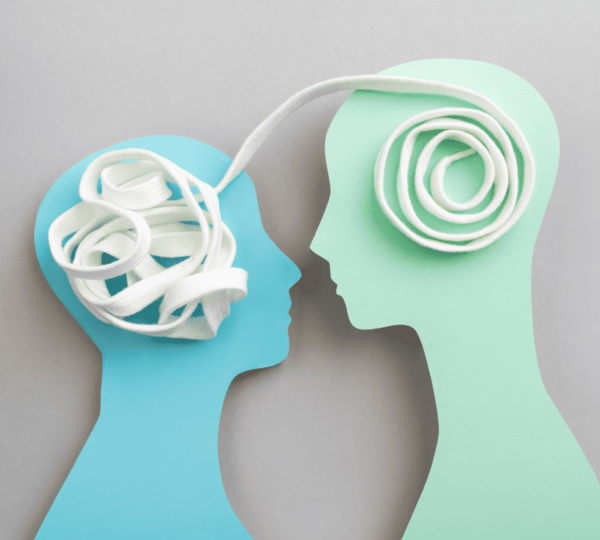
The Role of Empathy in Building Strong Relationships
I remember a particularly frustrating experience I had while flying from Toronto a few years ago. The flight was delayed for hours due to unexpected weather conditions, and the airport was packed with irritated passengers, everyone growing more impatient by the minute. As I sat at the gate, I overheard a heated argument between a flight attendant and a frustrated passenger. The passenger was upset about missing an important meeting, while the flight attendant seemed overwhelmed by the situation, trying her best to maintain order.
As the argument escalated, I couldn’t help but wonder: what would happen if empathy played a bigger role in moments like these?
The flight attendant, instead of just following the procedure, could have acknowledged the passenger’s stress and expressed understanding. “I know this delay is frustrating, and I understand how important your meeting is,” she could have said. A little empathy could have defused the situation and turned the atmosphere into one of mutual understanding. It made me realize that empathy is a fundamental, yet often underused, tool for building strong and lasting relationships, both personally and professionally.
What Is Empathy and Why Does It Matter?
Empathy is more than just understanding another person’s feelings; it’s the ability to deeply connect with them on an emotional level. It involves actively listening to others, recognizing their emotions, and responding in a way that demonstrates you value their feelings. It’s an essential skill for communication, problem-solving, and conflict resolution, especially in the age of social media and digital communication where real-time emotional understanding is often lost.
According to Dr. Brené Brown, a research professor at the University of Houston and an expert on vulnerability and empathy, “Empathy is simply listening, holding space, withholding judgment, emotionally connecting, and communicating that incredibly healing message of ‘You’re not alone.’” It’s a transformative skill that helps people feel seen, heard, and understood.
A study published in the Journal of Social and Personal Relationships found that couples who exhibit higher levels of empathy toward each other tend to have stronger, more satisfying relationships. Similarly, empathy in the workplace fosters collaboration and trust among team members, resulting in more productive and supportive work environments.
Empathy and Personal Relationships
When it comes to personal relationships—whether with family, friends, or romantic partners—empathy can make or break the connection. Imagine you’re having a bad day and share your frustrations with a close friend. If they listen attentively, offer validation, and acknowledge your feelings, you likely feel supported and heard. However, if they dismiss your emotions or focus on offering solutions immediately, you may feel unheard or disconnected. The latter scenario could lead to frustration and strain in the relationship.
Empathy allows us to avoid misunderstandings, bridge communication gaps, and create an atmosphere where both parties feel comfortable being vulnerable. Dr. John Gottman, a psychologist known for his work on relationship dynamics, highlights empathy as one of the key factors in maintaining long-term romantic relationships. In fact, Gottman’s research suggests that
How Empathy Transforms Difficult Conversations
One of the most challenging aspects of any relationship—whether personal or professional—is navigating difficult conversations. When emotions run high, misunderstandings can quickly spiral out of control. This is where empathy can truly make a difference. By putting yourself in the other person’s shoes and showing that you care, you can de-escalate tense situations and promote understanding.
A 2022 study published in The Journal of Applied Psychology examined how empathy influences conflict resolution. The researchers found that when individuals responded to conflicts with empathy, they were more likely to reach mutually beneficial solutions and maintain positive relationships post-conflict. This outcome is especially crucial in high-stress situations, where conflict can often feel overwhelming or unresolvable.
In a personal relationship, imagine you’re having a disagreement with a loved one. Instead of jumping to conclusions or defending your side immediately, try responding with empathy. A simple, “I understand why this is upsetting to you” can soften the tension and show the other person that you’re trying to hear them out, rather than dismissing their concerns.
In the workplace, leaders who exhibit empathy during difficult conversations can foster a culture of trust. For instance, if an employee is upset about a project or performance review, a leader who listens with empathy and validates the employee’s feelings can help preserve the relationship and turn the situation into an opportunity for growth.
Key Takeaway: Empathy is essential in resolving conflicts and preventing them from escalating. It helps maintain strong relationships by encouraging understanding and collaboration.
Empathy and Emotional Intelligence: A Powerful Combination
In the world of relationship-building, emotional intelligence (EQ) and empathy go hand in hand. Emotional intelligence, as defined by Dr. Daniel Goleman, encompasses the ability to recognize, understand, and manage our own emotions while also recognizing, understanding, and influencing the emotions of others.
Empathy is a core component of emotional intelligence. It’s what allows us to tune into other people’s feelings and respond with compassion. However, emotional intelligence also involves self-awareness, self-regulation, and social skills—all of which contribute to building stronger, more empathetic relationships.
A study published in The Journal of Organizational Behavior in 2020 showed that employees with high emotional intelligence were more successful in team environments. They were better at managing stress, building rapport, and resolving conflicts—key components of empathy. This study also found that emotionally intelligent leaders were more effective in motivating their teams and creating a positive work environment.
When emotional intelligence is high, empathy becomes a natural extension. It means understanding the emotional dynamics at play and responding thoughtfully. For example, if a colleague expresses frustration with a project, a leader with high emotional intelligence might say, “I can see that you’re feeling overwhelmed. How can I support you in tackling this?”
Key Takeaway: Empathy is an integral part of emotional intelligence, and together, they help build stronger relationships and more effective communication, both at work and in personal life.
How Our Brains Are Wired for Connection
Interestingly, the science behind empathy shows that humans are biologically wired for connection. Our brains have mirror neurons, which allow us to mimic and understand others’ emotional states. This neurological wiring is what makes it possible for us to feel what others are feeling—whether it’s joy, sadness, or frustration. It’s part of our natural social behavior, and it’s crucial for developing and maintaining relationships.
Research in The Journal of Neuroscience has shown that empathy activates the same areas of the brain involved in experiencing emotions ourselves. This means that when we witness someone else’s pain or joy, our brain responds in a similar way. This shared emotional experience helps us build empathy and creates a bond with others.
This biological foundation suggests that empathy is not just a skill we can develop but a natural human trait that allows us to connect with others on a deep level. However, just as with other aspects of emotional intelligence, we can enhance our empathetic abilities with practice and intention.
Key Takeaway: Empathy is rooted in our biology, and understanding how our brains are wired for connection can help us be more intentional in cultivating empathy in our relationships.
How Empathy Contributes to Mental and Physical Well-Being
Empathy doesn’t just benefit our relationships—it also has significant effects on our mental and physical health. Studies have shown that showing empathy and being on the receiving end of empathy can help reduce stress, anxiety, and depression. A 2023 study published in The American Journal of Psychiatry found that individuals who experienced greater empathy in their relationships had lower levels of cortisol, the stress hormone, in their systems. This is because empathy promotes positive social interactions, which have a calming effect on the body.
On the mental health front, showing empathy fosters a sense of connection and belonging, which is crucial for maintaining good mental health. In relationships, feeling understood and supported can mitigate feelings of loneliness and isolation, which are risk factors for depression and anxiety. Being empathetic also encourages positive self-esteem, as it affirms the worth of others and builds trust.
Moreover, empathy’s benefits extend to physical health. Research has shown that people who engage in empathetic relationships tend to have stronger immune systems and better overall health outcomes. This is likely due to the reduction in stress and the positive impact of emotional support on the body.
Key Takeaway: Empathy contributes to both mental and physical well-being by reducing stress, fostering connection, and enhancing emotional support in relationships.
Conclusion: Putting Empathy Into Action
In summary, empathy is a powerful tool for building strong, meaningful relationships. Whether in personal life or the workplace, empathy fosters understanding, trust, and collaboration, making it a crucial component of effective communication. By actively practicing empathy through active listening, putting ourselves in others’ shoes, and responding compassionately, we can create stronger bonds with the people around us.
Empathy also plays a vital role in conflict resolution, emotional intelligence, and even physical and mental well-being. The science behind empathy shows that we are biologically wired to connect with others, and by cultivating empathy, we can enhance our relationships and improve our quality of life.
So, how can you practice more empathy today? Take a moment to listen deeply to someone, validate their emotions, or simply show compassion. The small acts of empathy you practice today can lead to stronger, more fulfilling relationships tomorrow.
Call to Action: How do you practice empathy in your daily life? Share your thoughts in the comments below, and don’t forget to share this post with someone who might benefit from learning more about the power of empathy!
References:
- Brown, Brené. “The Power of Empathy.” TEDxHouston, 2010.
- Gottman, John. The Seven Principles for Making Marriage Work. Three Rivers Press, 2015.
- “Empathy and Leadership.” Harvard Business Review, 2021.
- “Empathy in the Workplace.” Center for Creative Leadership, 2020.
- Goleman, Daniel. Emotional Intelligence: Why It Can Matter More Than IQ. Bantam Books, 2005.
- “The Role of Empathy in Relationship Satisfaction.” Journal of Social and Personal Relationships, 2022.
- “Empathy and Conflict Resolution.” Journal of Applied Psychology, 2022.
- “Empathy in the Brain: The Science of Human Connection.” Journal of Neuroscience, 2021.
- “The Impact of Empathy on Mental and Physical Health.” American Journal of Psychiatry, 2023.













